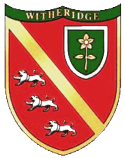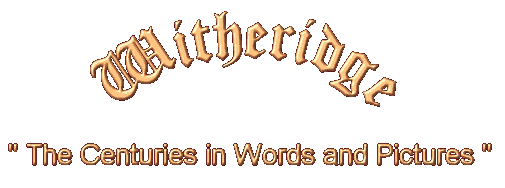

|
Mr Chapple (FC) was born at Prospect in 1887. He left school at 13 to work for Mr Tucker at Chapner where he lived and received one shilling and three pence per week. At 15, he was driving horses for Mr Arscott at Hill Barton (Thelbridge Barton). After a spell for Mr Frankpitt at Chapel Farm, Pennymoor, he worked for Bill Chapple, his cousin, at Bything (Betham) for 11 years, living at East Yeo. He also did war service and married in 1918. His last 40 years work was for Mr Ayre at Carns Mill, then at Billhole and then Thelbridge itself. He recalls as a young man aged 17 or 18 driving bullocks and sheep by road from Pennymoor to Exeter via Cadeleigh, Bickleigh Bridge, Rewe and Stoke Canon, "you wouldn't see a car all day." He had help with driving the bullocks but the sheep he would drive alone with a dog. He would put the sheep in the water meadows short of Cowley Bridge and sleep the Thursday night at the Cowley Bridge Inn before going onto Exeter market on the Friday. His journey on foot from Pennymoor to Cowley Bridge would take 5 to 6 hours. Mr Frankpitt would ride his hunter in. He recalls driving a horse and wagon to Anstey Station to collect manure and building materials for building work at Cruwyshaye (Rackenford Manor). When working as a boy with horses there were six full days of work and in addition, on Sundays the horses had to be looked after. He reckons he'd walk twenty miles in a day on horse work and when asked about entertainments and dances said there was "enough dance by day." His 1920's wages were five shillings a week, and used to buy 2 or 3 ounces of 'baccy' a week at three pence an ounce. He recollects no holidays in those days, just the occasional outing, perhaps by horse van or brake to Crediton, and then by train to Exmouth. Previous Last Edited 03/07/2006 Copyright © 2000-2006 Witheridge Unless otherwise indicated on the page in question, the photographic images reproduced on this site belong to the Witheridge Archives, and, as such may not be reproduced for commercial purposes without written permission. However, you are welcome to use any of the photographs belonging to the archive for personal and/or non-commercial use. Any material shown as not being owned by the archive may not be reproduced in any form without first receiving written permission from the owner of the material in question. |

